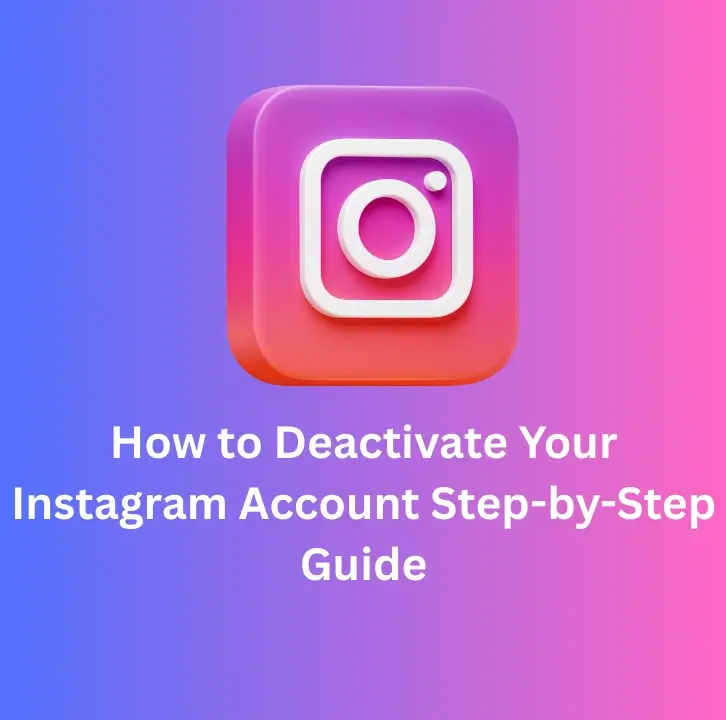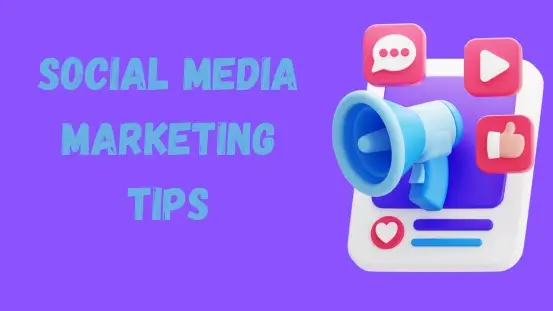In a world where social media has become an integral part of our lives, it is crucial to priorities our mental well-being. Instagram, one of the most popular platforms, offers a multitude of features and opportunities for connection. However, the constant exposure to curated content and the pressure to maintain a perfect online presence can take a toll on our mental health. This article aims to shed light on the art of Instagram deactivation. Explaining its significance and providing guidance on how to effectively utilize this powerful tool for self-care.
In today’s social media-dominated world, Instagram has become one of the most influential platforms, captivating billions of users with its visually appealing content and endless scrolling. However, an increasing number of individuals are now choosing to disconnect from this virtual world by deactivating their Instagram accounts. This decision to temporarily or permanently say goodbye to the digital realm is not only an act of self-care but also a transformative experience. That promotes personal growth, enhanced well-being, and the discovery of a more meaningful existence. This article explores the fascinating journey of Instagram deactivation, discussing its benefits, practical tips, and the profound impact it can have on our lives.
The Impact of Instagram on Mental Health world
The rise of social media has brought numerous benefits, including fostering connections and providing a platform for self-expression. However, studies have highlighted the negative impact of excessive social media usage, particularly on mental health. Instagram, with its emphasis on visual perfection and comparison culture, can contribute to feelings of anxiety, depression, and low self-esteem. The constant exposure to carefully curated content often leads to unrealistic expectations and a distorted sense of reality. Users may find themselves comparing their lives, appearances, and achievements to the seemingly perfect lives portrayed on the platform. This comparison trap can erode self-confidence and trigger feelings of inadequacy.
Instagram, as one of the most popular social media platforms, has a significant impact on mental health. While it offers various features for connection and self-expression. Excessive usage of Instagram can lead to negative effects on individuals’ mental well-being. It contributes to feelings of anxiety and depression. The platform is renowned for its focus on visual perfection, where users showcase their best moments, filtered images, and idealize lifestyles. Constant exposure to such curated content can create unrealistic expectations and a distorted sense of reality. Users may find themselves comparing their lives, appearances, and achievements to the seemingly perfect lives portrayed on Instagram. This comparison trap can erode self-confidence and trigger feelings of
inadequacy. Moreover, Instagram cultivates a culture of validation through likes, comments, and followers. The pursuit of validation and approval from others can negatively impact self-esteem. Users may feel pressured to present a flawless image and constantly seek external validation, leading to a constant need for validation and a sense of self-worth tied to social media metrics.
Instagram’s Addictive Nature
Furthermore, Instagram’s addictive nature contributes to decreased well-being. The endless scrolling and constant exposure to a stream of information and visual stimuli can lead to reduced productivity, disrupted sleep patterns, and a diminished sense of presence in the real world. Excessive usage of Instagram can also contribute to feelings of loneliness and isolation, as individuals may compare their social lives to the seemingly vibrant and active social circles portrayed on the platform.
The impact of Instagram on body image and self-esteem is another significant concern. The platform is filled with images of edited and filtered bodies that often promote unrealistic beauty standards. Continuous exposure to these visuals can result in body discontentment, negative body image, and unhealthy behaviors related to dieting and exercise.
It is important to note that while Instagram can have negative effects on mental health. It also depends on individual vulnerability factors and patterns of usage. Some individuals may be more susceptible to these negative effects, while others may have a more positive and balanced experience on the platform. In conclusion, Instagram’s influence on mental health is significant. The constant exposure to curated content, the pressure for validation, and the comparison culture can contribute to anxiety, depression, low self-esteem, body dissatisfaction, and decreased well-being. It is crucial for individuals to be mindful of their social media usage, set boundaries, and prioritise
their mental well-being in order to maintain a healthy relationship with Instagram and other social media platforms.
Understanding Instagram Deactivation
Instagram deactivation offers users a valuable tool to reclaim their mental well-being and regain control over their online presence. Unlike permanent deletion, deactivation allows users to temporarily disable their accounts. Giving them the freedom to take a break and step away from the platform without losing their data or connections. Deactivating an Instagram account involves a few simple steps. By accessing the settings menu, users can navigate to the “Privacy and Security” section. Where they will find the option to deactivate their account temporarily. Instagram also provides the option to reactivate the account at any time, ensuring that users can return when they feel ready. It offers individuals a break from the platform without permanently deleting their account or losing their data. Understanding the concept of Instagram deactivation involves recognizing its purpose, benefits, and the steps involved.
The purpose of Instagram deactivation is to provide users with an opportunity to take a break from the platform, alleviate the pressures of social media, and prioritize their mental well-being. It allows individuals to disconnect from the constant notifications, comparison culture, and the need to maintain a curated online presence.
The Benefits of Instagram Deactivation
1. Mental Well-being: Instagram deactivation provides a much-needed digital detox, allowing individuals to focus on their mental well-being. It creates an opportunity to disengage from the constant pressure of maintaining an online presence, resulting in reduced anxiety and improved self-esteem.
2. Enhanced Productivity: The endless scrolling and notifications on Instagram can be a significant source of distraction. By deactivating the account, individuals can redirect their energy towards more productive pursuits, such as hobbies, exercise, or spending quality time with loved ones. This break can foster increased focus and creativity.
3. Real-world Connections: The time freed from Instagram can be spent cultivating real-world relationships. Deactivating the account encourages face-to-face interactions, strengthening social bonds and fostering a sense of belonging.
4. Increased Self-Awareness: Stepping away from the constant stream of curated content enables individuals to reconnect with themselves. By taking time for introspection, one can gain clarity, reflect on personal goals, and explore new interests and passions.
5. Mental Health and Well-being: Taking a break from Instagram can improve your mental health by reducing feelings of comparison, anxiety, and self-doubt. Constant exposure to carefully curated highlight reels of others’ lives can create unrealistic expectations and negatively impact your self-esteem. Deactivating Instagram allows you to focus on yourself and your own well-being without the pressure of constantly comparing yourself to others.
6. Enhanced Privacy and Security: With the growing concerns about online privacy and data security, deactivating Instagram can provide a sense of control over your personal information. By removing your account, you reduce the risk of your data being accessed or misused by third parties. Additionally, deactivation can help minimize the digital footprint associated with your online presence.
Improved Relationships
Constantly being immersed in the digital world can sometimes hinder genuine human connections. By taking a break from Instagram, you can prioritize building and nurturing real-life relationships. With more time and attention available, you can engage in meaningful conversations. Spend quality time with loved ones, and strengthen your social bonds outside the platform.
- Reduced Social Pressure: Instagram often creates a culture of perfection and comparison. By deactivating your account, you can escape the pressure to present a flawless image or keep up with trends. This freedom allows you to be more authentic, embrace imperfections, and focus on self-acceptance and self-care rather than seeking validation through likes and followers.
- Rediscovering Personal Interests: Deactivating Instagram opens up space in your life for new experiences and the exploration of personal interests. You can rediscover hobbies, engage in creative pursuits, or pursue activities that bring you joy and fulfilment. Without the constant distraction of social media, you can focus on personal growth and self-discovery.
- Reduced Online Noise: Instagram can sometimes feel overwhelming with a constant influx of information, advertisements, and content from countless accounts. Deactivating your account allows you to step away from the noise and regain a sense of tranquillity. It gives you the opportunity to cultivate a quieter digital environment or even take a complete break from social media altogether. It’s important to note that the benefits of deactivating Instagram can vary from person to person. It’s a personal decision, and the impact will depend on your individual circumstances and relationship with the platform.
Guidance for Instagram Deactivation
- Consider Your Motivation: Before deactivating your Instagram account, reflect on your reasons for doing so. Are you seeking a break from social media, addressing mental health concerns, or looking to realign your priorities? Understanding your motivation will help you stay committed to your decision.
- Inform Your Connections: Let your close friends, family, and important contacts know about your decision to deactivate your Instagram account. This will prevent any confusion or concern about your sudden absence from the platform and ensure they can reach you through other means of communication.
- Backup Your Data: If you have valuable content or memories on your Instagram account, consider backing up your data before deactivating. You can download your photos, videos, and other important information using Instagram’s data export feature.
- Temporary vs. Permanent Deactivation: Decide whether you want to temporarily deactivate your account or permanently delete it. Temporary deactivation allows you to take a break and reactivate your account later. While permanent deletion will permanently remove all your content and information.
Deactivation Process
a) Mobile App: Open the Instagram app and go to your profile. Tap on the three horizontal lines at the top right corner, select “Settings,” then “Account,” and finally, “Temporarily Disable Account” or “Delete Your Account” (depending on your preference).
b) Web Browser: Visit Instagram’s website (www.instagram.com) and log in to your account. Go to your profile, click on the gear icon next to the “Edit Profile” button, select “Privacy and Security,” and then choose the appropriate option for deactivation.
- Take a Break: Once you’ve deactivated your account, resist the temptation to log back in. Allow yourself to fully disconnect from Instagram and embrace the freedom it brings. Use this time to focus on other aspects of your life and engage in activities that bring you joy and fulfilment.
- Set Boundaries: If you decide to reactivate your account after a temporary deactivation, establish clear boundaries for your Instagram usage. Consider limiting your screen time, unfollowing accounts that negatively impact your well-being. Using features like muting or turning off notifications to reduce distractions.
- Seek Support: Deactivating Instagram can sometimes lead to feelings of isolation, especially if it has been a significant part of your social life. Reach out to friends, family, or support groups to share your experiences, seek advice, and maintain social connections outside the platform.
Self-Reflection and Evaluation:
During your Instagram break, take time to reflect on your relationship with social media and how it affects your life. Consider the positive and negative impacts it has had, and evaluate how you can develop healthier habits when you return, if you choose to do so. Remember, the decision to deactivate your Instagram account is a personal one. Listen to your instincts and priorities your well-being. Embracing this break from the digital world can provide valuable insights, help you reconnect with yourself and others, and ultimately lead to a more fulfilling and balanced life.
In conclusion, the decision to deactivate your Instagram account is a powerful act of self-care and a means to priorities your mental well-being. Instagram, while offering numerous opportunities for connection and self-expression, can also have negative impacts on mental health. The constant exposure to curated content, the pressure for validation, and the comparison culture can lead to anxiety, depression, low self-esteem, and body dissatisfaction.
Instagram deactivation provides a valuable tool for reclaiming control over your online presence and taking a much-needed digital detox. It allows you to disengage from the pressures of social media, alleviate anxiety, and improve self-esteem. By temporarily disabling your account, you can redirect your energy towards more productive pursuits, strengthen real-world connections, and foster increased self-awareness. The benefits of Instagram deactivation are far-reaching. It enhances mental well-being, improves productivity, cultivates real-world relationships, promotes self-awareness.
Enhances privacy and security, reduces social pressure, and allows for the rediscovery of personal interests. It provides a break from the constant stream of information, comparison, and noise, allowing you to focus on your own well-being and personal growth, When considering Instagram deactivation. It is important to reflect on your motivations, back up your data, and decide whether temporary or permanent
deactivation is right for you. Following the deactivation process, take a break and resist the temptation to log back in. Set clear boundaries for your Instagram usage if you choose to reactivate in the future. Seek support from loved ones and engage in self-reflection and evaluation during your break.





